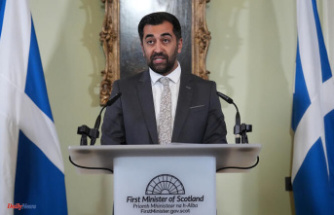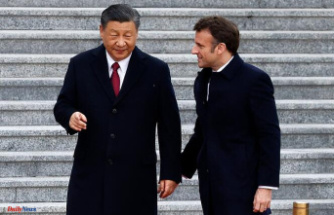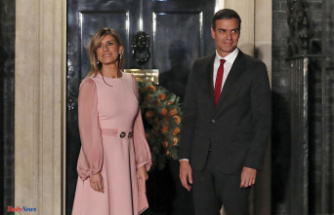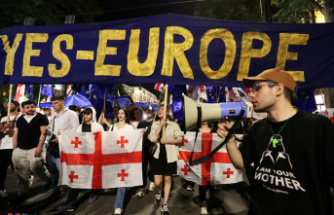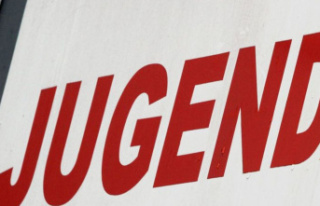"I can't say that we are totally relaxed," admits this 31-year-old woman, head of a charitable fund, who arrived from Saint Petersburg with her husband and two young sons. "If we feel that things are going badly, we go back".
Like her, thousands of Russians spend their holidays in the Ukrainian peninsula of Crimea, annexed in 2014 by Moscow and rear base of the Russian army on the offensive in Ukraine.
While teenagers jumping off rocks into the sea and bare-chested travelers with beer in hand and grilling over open fires lend an air of summer normality to this vacation spot, the reality is that the front isn't that far away.
- Fights at 300 or 400 km -
300 or 400 km north of Sevastopol, fighting is a daily reality.
And this port city is home to the Russian Black Sea Fleet whose ships, deployed at sea, fire almost every day on Ukrainian territory.
Civilian air links to Crimea have also been suspended since the end of February, due to clashes nearby.
The trip is therefore by car and by train.
To reach the beaches, Alexandra Roumiantseva recounts having covered, with her family, 2,500 kilometers by car from Saint Petersburg, taking the viaduct which connects Russian territory to the peninsula.
And this despite rumors of Ukrainian attempts to attack this bridge. "Obviously that worries people."
On the way to the holidays, she also says that she crossed paths with a column of Russian military vehicles.
During a visit to Sevastopol in mid-July, AFP journalists also observed Russian warships cruising on the horizon and, day and night, combat aircraft were audible or visible in the skies. .
In the city, patriotic songs resound and souvenirs stamped with the letter "Z", a symbol of the Russian armed forces in Ukraine, are sold to tourists.
- "They are afraid" -
But above all, Crimea borders the Ukrainian region of Kherson, partly occupied by Russian soldiers.
However, the Ukrainian forces have launched a counter-offensive there, with initial success, with the aim of resuming it by the end of the summer.
The Ukrainian authorities have also always claimed for the past eight years that one day they would also take over the peninsula.
Suddenly, the possibility of strikes in Crimea cannot be ruled out, especially since kyiv has drones and long-range guns provided by its allies. Already in June, hydrocarbon drilling platforms off this territory were hit by Ukrainian fire.
The risks linked to the conflict, the difficulties of access, but also the first effects of Western sanctions on the wallets of Russians have unsurprisingly led to a drop in tourist numbers in Crimea. The season promises to be gloomy.
"It seems that only locals are resting here this year," said Anna Zaloujnaïa, a 28-year-old resident of Sevastopol, interviewed by AFP on a sandy beach north of the city.
Albert Agagoulian, 69, runs a small grill restaurant nearby.
The place is almost empty. This retired colonel from the Soviet Air Force can only see the drop in his income.
"To my great shame, I could not pay for a summer camp for my child", explains this man in a tank top, sitting behind the counter of his business. "People don't come because they're scared."
Viktor Borodulin, an engineer still active at the age of 77, said he was "very worried" about the conflict, confiding his "pain" after Ukraine managed to sink the flagship of Russia in the Black Sea, the Moskva, a slap in the face for Moscow.
But, this resident of the village of Katcha in Crimea is delighted to be able to obtain fruit and vegetables from the Ukrainian territories recently occupied by Russia.
"Today I was able to buy products from Kherson, for me it is a great joy."



